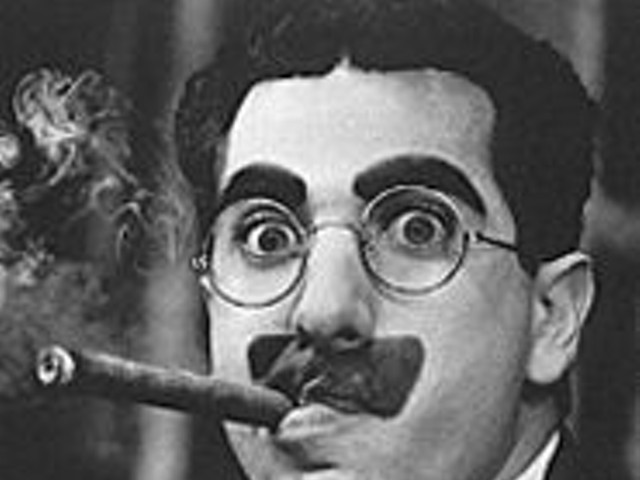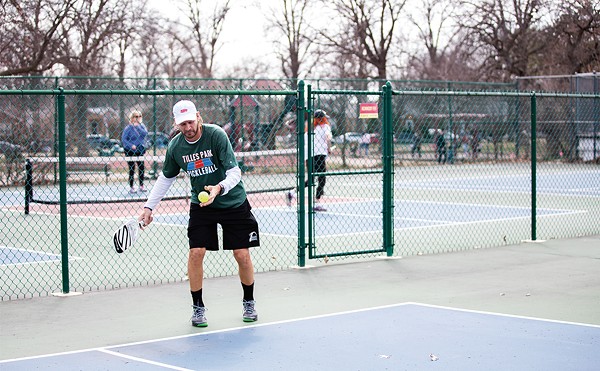Seven Guitars is a play for the gods, or at least the fates. Set in the scraggly backyard of a Pittsburgh rooming house in May 1948, the plot focuses on Floyd "Schoolboy" Barton (J. Samuel Davis), a talented young blues singer whose first single has just been released by a Chicago record company. Although he needs to scrape together enough money to return to Chicago, Floyd is going nowhere, for he is tragically doomed. In fact, Floyd is already dead when the play begins; his final, fateful week is chronicled in flashback.
During that week, we also meet Vera (Marguerite Hannah), the woman Floyd once walked out on, who now must decide whether to forgive. Then there are Red Carter (Thomas Jefferson Byrd), Floyd's rambunctious, rubber-legged drummer, and Canewell (Kim Sullivan), the would-be manager who serves as a harmonica-playing Horatio to Floyd's Hamlet. For spice we have Ruby (Cherita Armstrong), a sultry new arrival from Birmingham. Ruby's aunt, Louise (Denise Thimes), manages the roominghouse and lends a note of common-sense reality to everyone else's pipe dreams, and Hedley (Dennis Lebby), an old Caribbean street vendor who is dying of tuberculosis, radiates an eerie aura of myth and superstition.
These actors are a marvel. Not only do they work gorgeously together, they're fascinating to watch while off alone, existing in inner worlds. Most have acted in other Wilson plays, and they have learned that it's not necessary for the audience to absorb every single word; far better to allow the play to roll over the audience, as if it were a force of nature.
Alas -- and it's a sad, sad alas -- despite all their mesmerizing work, by evening's end the play's ultimate impact is diluted, and it's mainly Wilson's fault. August Wilson is a dazzlingly gifted writer; that's a given. But he will never say anything once if he can find a way to say it twice. Although Seven Guitars shares themes with such masterworks as Anton Chekhov's Three Sisters, Sean O'Casey's Juno and the Paycock and Arthur Miller's Death of a Salesman, those dramatists all knew something Wilson does not: when to shut up. Here, in the final scenes, just as the play should be building to its climax, any inherent drama is smothered under the weight of verbal excess.
But Wilson is not the sole culprit, for crafted into the fabric of all these riffs about Muddy Waters, Lazarus and Joe Louis, amid all these harangues against the oppressiveness of white America, are three highly theatrical incidents calculated to stun the audience -- one in the first act, two in the second. Inexplicably, this otherwise perfect-pitch production missed all three moments.
The ultimate effect here is akin to watching Mario Andretti lead the Indianapolis 500 for the first 198 laps -- and then run out of gas five miles from the finish line. The anxious viewer, who had hoped to share vicariously in the victory, instead is left feeling disappointed and frustrated. Nevertheless, there's no denying that this Black Rep production is a remarkable achievement. It should be deemed essential viewing for anyone who truly cares about contemporary American theater.
P.S. "Director's notes" in theater playbills are supposed to enhance, not spoil, the viewer's pleasure. Seven Guitars is part comedy, part drama, but it's also part mystery. It's inexcusable that the notes for Guitars reveal the play's most important surprises. If you attend the production, don't read the notes until after you've seen the play.





